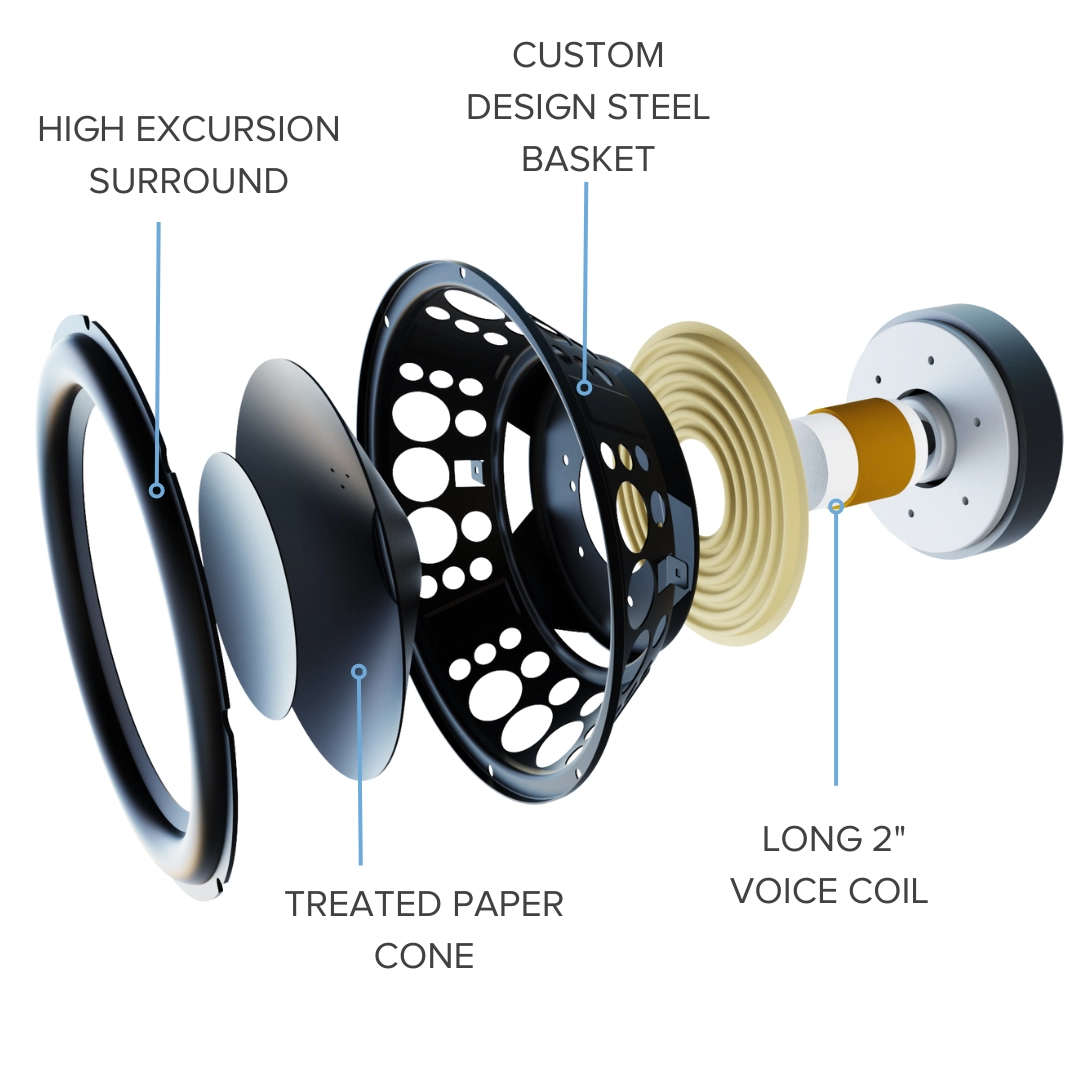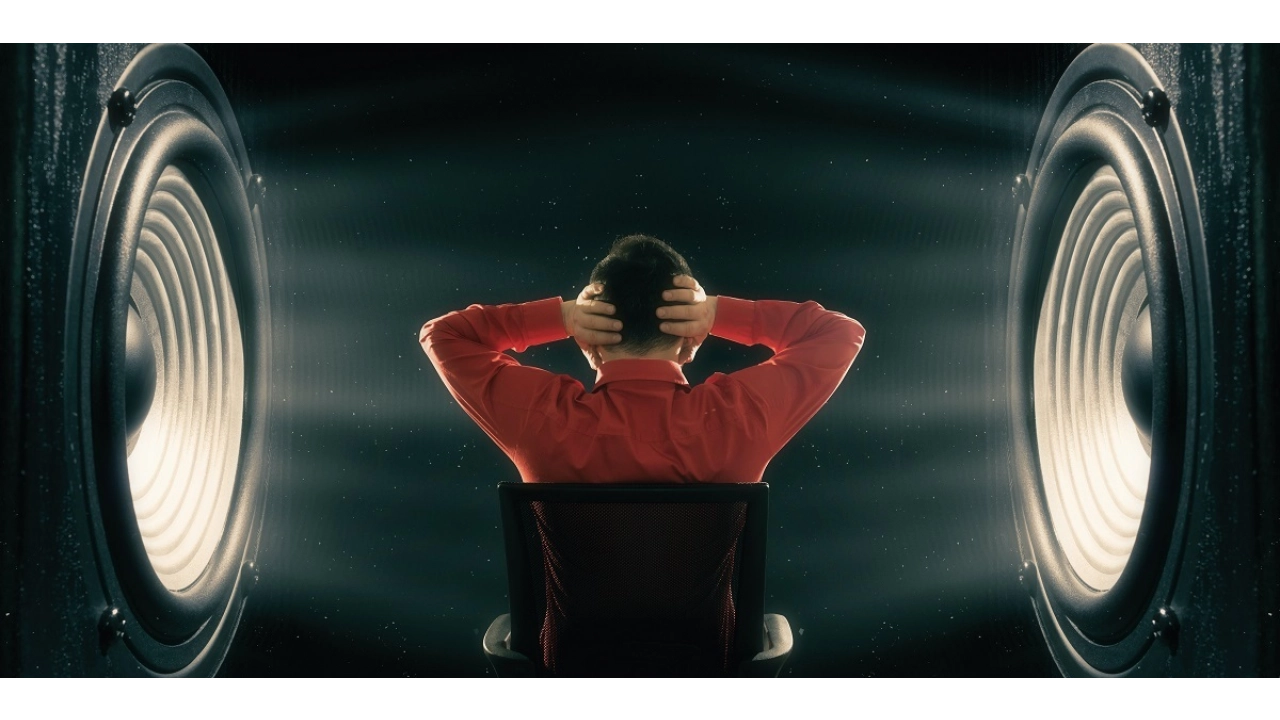What Is Making Your Speakers Crackle?
Hearing crackles and pops in your audio can impact your overall experience, especially when trying to enjoy a movie or your favorite music. The noise can happen suddenly without warning, even if you’re using your best speakers. It is sure to raise concerns, and you will want to have it fixed immediately.
ELAC provides state-of-the-art audio equipment, including some of the leading electronics and powered speakers in the market today. We offer the finest built audio systems that reduce speaker crackles and popping sounds, elevating your listening experience.
In this guide, we’ll cover crucial topics and answer several important questions:
- What is a crackling sound?
- Why are my speakers crackling?
- What are the common causes of sound crackling?
- How to fix speaker crackling sounds?
What Is a Crackling Sound?
When you hear crackling from speakers and other audio devices, it disrupts your listening experience. It is characterized by sharp, intermittent, and popping noises, which distorts the audio output. Some people describe it as resembling the sound of static or small explosions.
Sometimes, it is caused by crackly speakers, but most of the time, it may have something to do with loose or dirty connections in your audio system. However, these terrible noises can also be due to failing audio equipment like amplifiers. In worse cases, your speaker cone may already be damaged and in need of replacement.
It is important to distinguish speaker crackles from other potential audio problems like distortion and buzzing. Compared to crackling from speakers, distortion involves the alteration of the original sound you were listening to. On the other hand, buzzing noises are continuous, with no brief bursts of noise.
In addition, when you listen to an audio buzz, it often registers as a low-frequency noise. On the other hand, audio crackling stands out due to its sharp, irregular noise, making it distinct from these other issues.

Why Are My Speakers Crackling?
Crackly speakers significantly diminish audio quality, which can be frustrating for listeners. It can affect voices, music, sound effects, and other types of audio content. Understanding why speakers are crackling will help you troubleshoot the potential causes of this issue and prevent future sound crackling from occurring.
The most common cause of speaker crackles is an interrupted audio signal. An electrical current creates audio signals since speakers convert them into sound waves. Any interruption to the alternating current signal will cause crackling from speakers and other equipment.
The Anatomy of a Sine Wave
It is important to note that audio information in your sound system travels in the form of electrical energy. When these signals reach your speakers, they are converted into wave energy, making the sound driver move in and out in smooth, wavelike patterns with peaks and troughs.
One peak and trough completes a cycle, and the transition is usually smooth from one phase to the other. The driver is pushed outward at the peak and pulled inward during the trough. The speaker’s resting position is in the middle of the peak and the trough, where it doesn’t produce any sound.
The Effect of Crackly Speakers
When you have crackling car speakers, this is usually caused by interrupted electrical signals from your vehicle’s audio device going to your speakers, breaking the smooth flow of current and producing a brief moment when no voltage is running through your system.
This interruption will cause the speaker drivers to stop moving abruptly, heading into their resting position and not producing sound. In this situation, the driver will attempt to instantaneously move from either the peak or trough position to rest, resulting in a clicking or crackling sound.
When addressing crackling car speakers, one of the first things to check is your vehicle’s wiring. One of the ways to prevent future audio crackling is by having your sound system’s wiring mended.
Other Common Causes of Sound Crackling
In order to learn how to fix speaker crackling sounds, you also need to consider other potential causes. These include speaker overloading, dust and debris, speaker cone damage, and problems with your amplifier.
- Electrical Interference: Interference can come from nearby WiFi routers, cell phones, and similar devices. They emit electromagnetic signals that can disrupt audio signals, resulting in crackling sounds.
- Speaker Overload: When speakers receive more power than they can handle, it causes sound distortion and crackling. To avoid this issue, ensure the audio source is not set to an excessively high volume level. It will also help to review your speaker’s recommended power rating and avoid pushing the system beyond its limits.
- Dust and Debris: Dust tends to accumulate on speaker components and obstruct the movement of the cones, causing crackling sounds. It is best to clean your speakers regularly. You can use a soft brush or compressed air to remove dust and debris.
- Amplifier problems: Sometimes, the problem may be with something other than your speakers but the amplifier. If this is the case, it is often due to distortion in the audio signal, which causes issues with the amplifier circuitry. If you have checked your speaker wires and everything is in tip-top shape, you should have a professional inspect your amplifier.
- Damaged Speaker Cone: Speaker cone damage can cause crackling sounds, preventing it from vibrating smoothly. The damage can be seen as a change in shape or tears in the material. You may have to replace the damaged cone to improve your speaker’s sound quality.
How to Fix Speaker Crackling Sounds
Now that you understand why speakers crackle, you can identify potential problem points and have the issue fixed. The cause of the problem can be anything from faulty or loose cables to problems with your amplifier. Sometimes, you may need to move your WiFi router further away to fix the issue. A professional audio technician can help you identify the root cause of your crackling speakers and address the issue directly.
Choose High-End Speakers from ELAC Americas
If you’re looking for unparalleled audio systems that rarely produce crackling or popping, look no further than the speakers manufactured and distributed by ELAC Americas. Our speaker systems offer better sound control, connectivity, and better equipment integration. Check out our line of high-quality powered speakers and discover a new era in sound production.

